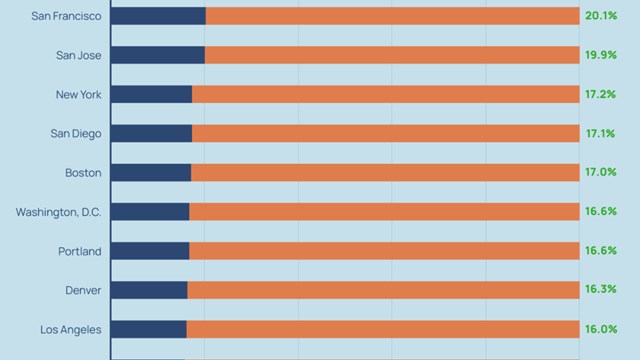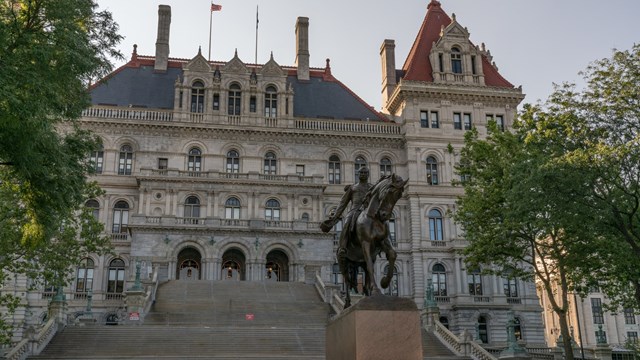A recent federal appeals court decision on the subject of income tax law stands to be of great benefit to cooperative corporations around the city, particularly in light of damage suffered in many buildings from Hurricane Sandy. Alphonso v. Commissioner of Internal Revenue, 708 F.3d 344 (2d Cir. 2013).
Alphonso involved the Castle Village apartment complex, which includes 589 apartments in five twelve-to-fifteen-story buildings situated on approximately seven acres in Manhattan on the eastern bank of the Hudson River overlooking Riverside Drive and the Henry Hudson Parkway. The grounds are a landscaped private park, featuring benches, garden paths and a children’s playground among other amenities.
On May 12, 2005, a retaining wall structure, approximately 70 feet high and 250 wide, which held the grounds in place over Riverside Drive and the parkway, suddenly collapsed, spilling soil and rock over all lanes of the Henry Hudson Parkway, causing significant damage. The collapse blocked the parkway, attracting considerable attention in the media.
Exercising its contractual rights, Castle Village assessed all of its tenant-shareholders the cost, beyond insurance coverage, of repair and clean-up.
On their personal income tax returns, the tenant-shareholders took “casualty losses” for the amounts they contributed. A casualty loss is a tax deduction that individual taxpayers are permitted for non-business “losses of property … if such losses arise from fire, storm, shipwreck, or other casualty, or from theft.”
Deductions Denied
The IRS disallowed the tenant-shareholders’ deductions, and the Alphonso case, which was brought in the United States Tax Court, became a test case for whether the deduction would be permitted to all of the tenant-shareholders.
The Tax Court ruled in favor of the IRS and denied the deduction. Its reasoning was that the grounds of the cooperative complex, constituting the property that was damaged, were not owned by the tenant-shareholders, but rather by the cooperative corporation itself, and the tenant-shareholders’ leasehold interests covered their own apartments but not the grounds. Therefore, the Tax Court ruled, the tenant-shareholders themselves did not have a sufficient “property interest” in the grounds to support the deduction.
On this reasoning, the cooperative corporation itself would be able to take the deduction but, as is typical, it would not have had taxable income enabling it to use the deduction. Typically, cooperative corporations charge their tenant-shareholders rent (called “maintenance”) measured by their “cash requirements,” so that, by definition, the corporation will generally not have taxable income. Therefore, the deduction would be wasted if it could not be taken by the tenant-shareholders, rather than by the corporation.
On appeal, the Court of Appeals for the Second Circuit reversed the Tax Court, ruling in favor of the taxpayer (and, by extension, all of the tenant-shareholders). The Second Circuit held, in sum, that the proprietary lease of Castle Village, as augmented by its “house rules,” which were attached to the lease, gave tenant-shareholders “the right to use the Castle Village grounds.” Although this right was “not exclusive with respect to [the taxpayer’s] fellow tenants,” since it was part of the leasehold interest of tenant-shareholders and was “shared with other residents of Castle Village and their respective guests but not with anyone else,” it was a “property interest” in the grounds, supporting a casualty loss deduction.
The Alphonso case is not yet finished. The appeals court remanded the case back to the Tax Court for further proceedings on the subject of whether the collapse of the retaining wall was the result of a “casualty,” another element that must be proven to obtain the deduction.
Conclusion
The case is of great significance, especially in light of Hurricane Sandy. Particularly in coastal areas, numerous cooperative buildings were damaged in the superstorm. Most typically, the damage was to lobbies on ground floors and basement spaces used for storage and laundry rooms. Apartments on upper floors tended to suffer less damage. The lobby and basement space in a cooperative, like the grounds in Castle Village, are owned by the cooperative corporations, not by the tenant-shareholders. Typically, tenant-shareholders have the right to use this space in common with their fellow shareholders, but to the exclusion of the general public. Under the authority of the Alfonso case, hurricane damage to this type of space that is not covered by insurance may well support a casualty loss tax deduction for the tenant-shareholders.
Cooperatives and their counsel should look at this issue carefully to see whether some part of the damage from Hurricane Sandy or other catastrophic events might be recoverable through this use of the Alfonso decision.
Eric B. Levine is a member of the firm of Wolf Haldenstein Adler Freeman & Herz LLP and represented the taxpayer on the appeal in the Alfonso case.







Leave a Comment